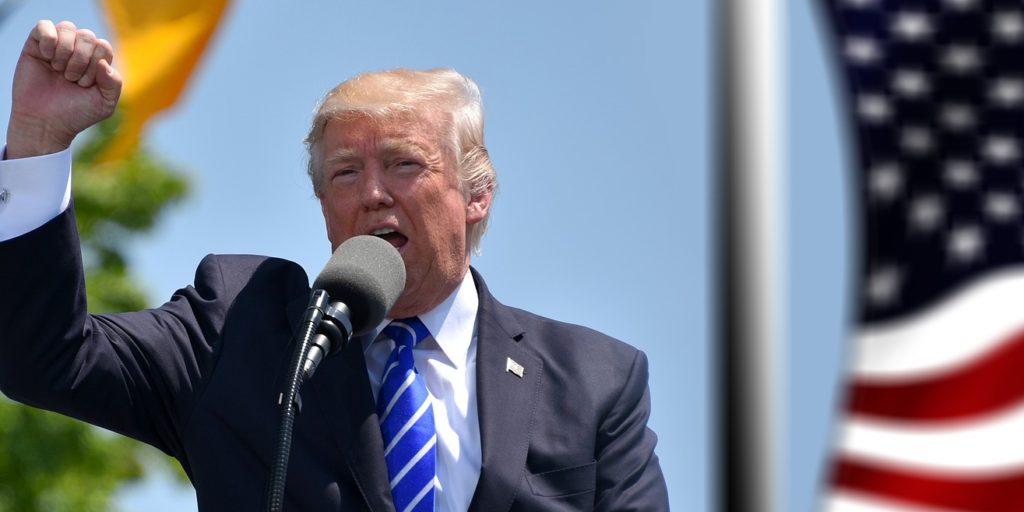- A good example of anti-SLAPP legislation done right - December 15, 2023
- A simpler, faster way to handle defamation actions - October 11, 2023
- ChatGPT’s credibility undermined by ‘hallucinations’ - July 26, 2023
By Paul Russell, LegalMatters Staff • The news media has mischaracterized the legal arguments put forward by a former lawyer for Donald Trump as she attempts to have a billion-dollar defamation lawsuit against her dismissed, says Toronto defamation lawyer Howard Winkler.
It is alleged that Sidney Powell stated on television and in legal briefs that “Dominion machines ran on technology that could switch votes away from Trump, technology she said had been invented in Venezuela to help steal elections for the late Hugo Chávez.”
She is currently seeking the summary dismissal of the claim against her by Dominion Voting Systems.
“The news coverage of the motion by Powell to dismiss the claim has been inflammatory, misconstruing the legal grounds her dismissal motion is based on, says Winkler, principal and founder of Winkler Law.
As an example, he points to an article in The Guardian, headlined, “Pro-Trump lawyer says ‘no reasonable person’ would believe her election lies.”
“This headline is misleading and is likely to be interpreted as meaning that Powell is admitting that no reasonable person would take her voter fraud claims to be true,” Winkler says. “That is not the premise of her dismissal motion, though most of the media seems to have seized on that incorrect interpretation.
“In fact, what Powell argues is that ‘no reasonable person’ would conclude that her allegations were statements of fact, but rather they were understood as statements of her opinion,” he explains.
Not a defence by ‘reputational suicide’
“Most coverage on this issue seems to suggest she is relying on a defence built around the idea that since she has so little credibility, nobody would believe what she is saying is true and therefore her statements are not defamatory,” Winkler adds. “In essence, this would be a defence of self-inflicted reputational suicide. But that is not a correct interpretation of her motion.”
Quoting from her legal documents, the article states: “It was clear to reasonable persons that Powell’s claims were her opinions and legal theories on a matter of utmost public concern.”
That is the pleading of the well-recognized defence of fair comment within the law of defamation, says Winkler, adding that Powell also has the benefit of the First Amendment of the U.S. Constitution, guaranteeing her right to freedom of speech.
“Under these circumstances, in order for there to be liability for publication of defamatory opinions, Dominion is going to have to demonstrate, among other things, actual malice, meaning that she knew the statements she was making were false or that she was reckless about their truth or falsity,” he says.
Legal factors in her favour
Another factor in Powell’s favour is that the statements made in court filings about Dominion were consistent with her public allegations of voter fraud, says Winkler. “The law of defamation provides protection for statements made in the course of the litigation process.”
He adds, “the real battle is going to be whether Powell can ground her opinions on underlying facts which can be proven to be true; and the issue of malice, which gets into a question of her state of mind.”
Winkler predicts that Powell’s motion to dismiss the defamation lawsuit will fail, but not for the reasons most media outlets are reporting.
“I don’t think she stands a chance on the motion because of the issue of malice. That likely needs to be determined at trial, and not through a summary motion,” he explains. “While I don’t think she will be successful on her motion, the media has been unfairly reporting the legitimate nature of the motion which she has brought.”
Trump supported her statements
The Guardian article says Powell’s claims about Dominion voting machines originated in a comment on a pro-Trump blog.
“They would be amplified on a global scale by Trump himself in a 12 November tweet in which he wrote in part “REPORT: DOMINION DELETED 2.7 MILLION TRUMP VOTES NATIONWIDE,” the article states.
It adds that the former president reportedly supported Powell’s claims in private and trumpeted them in public, touting Powell two weeks after the election as a key part of “the legal effort to defend OUR RIGHT to FREE and FAIR ELECTIONS.”
Many Washington insiders expressed disbelief in Powell’s statements. “This is her defense. Wow,” tweeted the Republican representative Adam Kinzinger.
“Bad argument!” added Trump’s former lawyer Michael Cohen in a Tweet. “[Powell] should have gone with an insanity defense due to #TrumpDerangementSyndrome.”
Winkler says those comments further confirm how the legal principles behind her dismissal motion are being misconstrued.
Lawsuit tests free speech in campaigns
Provided that Powell’s dismissal motion fails, he says he will be interested to see how Dominion’s US$1.3-billion defamation lawsuit plays out.
“In both the United States and Canada, there is not a lot of litigation concerning false statements made in the course of a political campaign,” Winkler says. “Those cases almost never make it to trial. They are usually brought and then abandoned or settled for political purposes.”
He says the Dominion lawsuit again Powell could help to define the limits of free speech during political campaigns.”
“While there is greater protection of free speech in the United States, it’s curious there hasn’t been more of the same litigation in Canada arising from false statements made during election campaigns,” Winkler says.
Dominion Voting Systems was founded in Canada in 2002 and has headquarters in Toronto as well as Denver. According to the firm’s website, “Multiple U.S. government agencies and election customers across 28 states have conclusively affirmed that no voting system deleted, lost, or changed votes in the 2020 election.”

